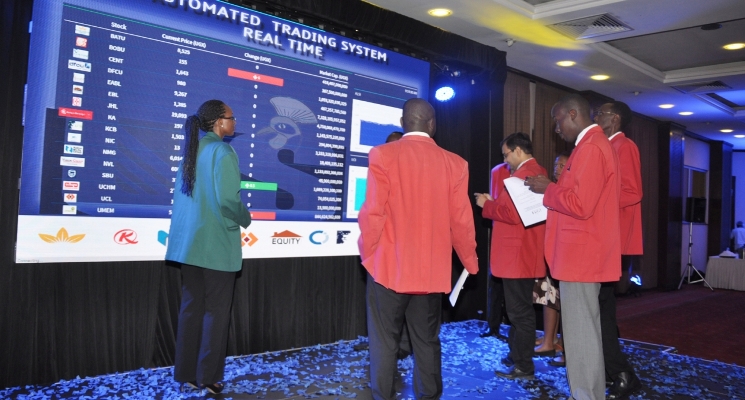By John Rujoki Musinguzi (pictured), Commissioner General- Uganda Revenue Authority, Mary Baine, Director – Tax Programmes, African Tax Administration Forum, Zayda Manatta, Head of the Secretariat of the Global Forum on Transparency and Exchange of Information for Tax Purposes, and Marcello Estevão, Global Director, Macroeconomics, Trade & Investment, World Bank Group
Uganda has significantly strengthened its tax transparency and tax capacity in just a few years to mobilise more domestic resources to finance sustainable development. Moreover, the country has taken significant steps to tackle illicit financial flows by implementing global transparency and information exchange standards.
The results have been impressive: USD 26 million in additional revenue has been identified since 2014 through audits and exchange of information, USD 22 million of which has already been paid to government coffers.
The case study on Uganda published today shows how tax transparency can help developing countries strengthen their tax and resource mobilisation capacities to meet the Sustainable Development Goals and the African Union’s 2063 Agenda. It also shows that Uganda’s successful journey is the result of strong political and administrative commitment, clear strategy, and coordinated and steady support from development partners.
To fight against tax evasion, Uganda joined the Global Forum on Transparency and Exchange of Information for Tax Purposes (Global Forum) in 2012. In doing so, Uganda included exchange of information as a key component of its domestic resource mobilisation strategy to improve compliance of both multinational enterprises (MNEs) and individuals, including ones with high-net-worth. In 2016, Uganda also became a party to the Convention on Mutual Administrative Assistance in Tax Matters, the most powerful multilateral instrument for tax co-operation, with over 140 participating jurisdictions.
Partnerships also played a significant role. By partnering with the Global Forum, the African Tax Administration Forum (ATAF), the OECD, and the World Bank Group (WBG), Uganda was able to accelerate its transformation. These partnerships supported much-needed reforms, and helped develop technical capacities through skills and knowledge transfer.
Furthermore, since 2016 transfer pricing experts from ATAF, the WBG and the Tax Inspectors Without Borders (TIWB) initiative have been working alongside Ugandan officials on audit cases in sectors such as manufacturing, agriculture (commodity exporters), banking, and telecommunications. This has helped Uganda collect additional tax of nearly USD 125 million including approximately USD 26 million from just one audit case.
Exchange of information, which strengthens the audits and investigations, is now routinely used in Uganda’s national tax compliance programme. As a result, the number of requests for information made by Uganda’s authorities jumped from two in 2012 to 69 between 2014 and 2019.
Encouraged by these positive outcomes, Uganda has embarked on implementing automatic exchange of financial account information by 2023 with the support of the Global Forum. The country’s revenue authorities will then automatically receive information on financial accounts held by Ugandan residents in offshore financial institutions on a yearly basis. This should increase tax compliance and help better tackle tax evasion and other illicit financial flows.
Uganda is an effective regional player and a proponent of the tax transparency agenda in Africa. It was one of the first signatories of the Yaoundé Declaration, which is now supported by 30 African countries and the African Union Commission.
Uganda’s transformative journey paves the way for other developing countries and emphasises the need for a swift transition from political commitment to practical application. Uganda’s experience shows the importance of a multi-faceted and coordinated approach involving regional and international organisations to support developing countries’ commitment to the tax transparency agenda. Read the details of this case study below or Click here to download the document






